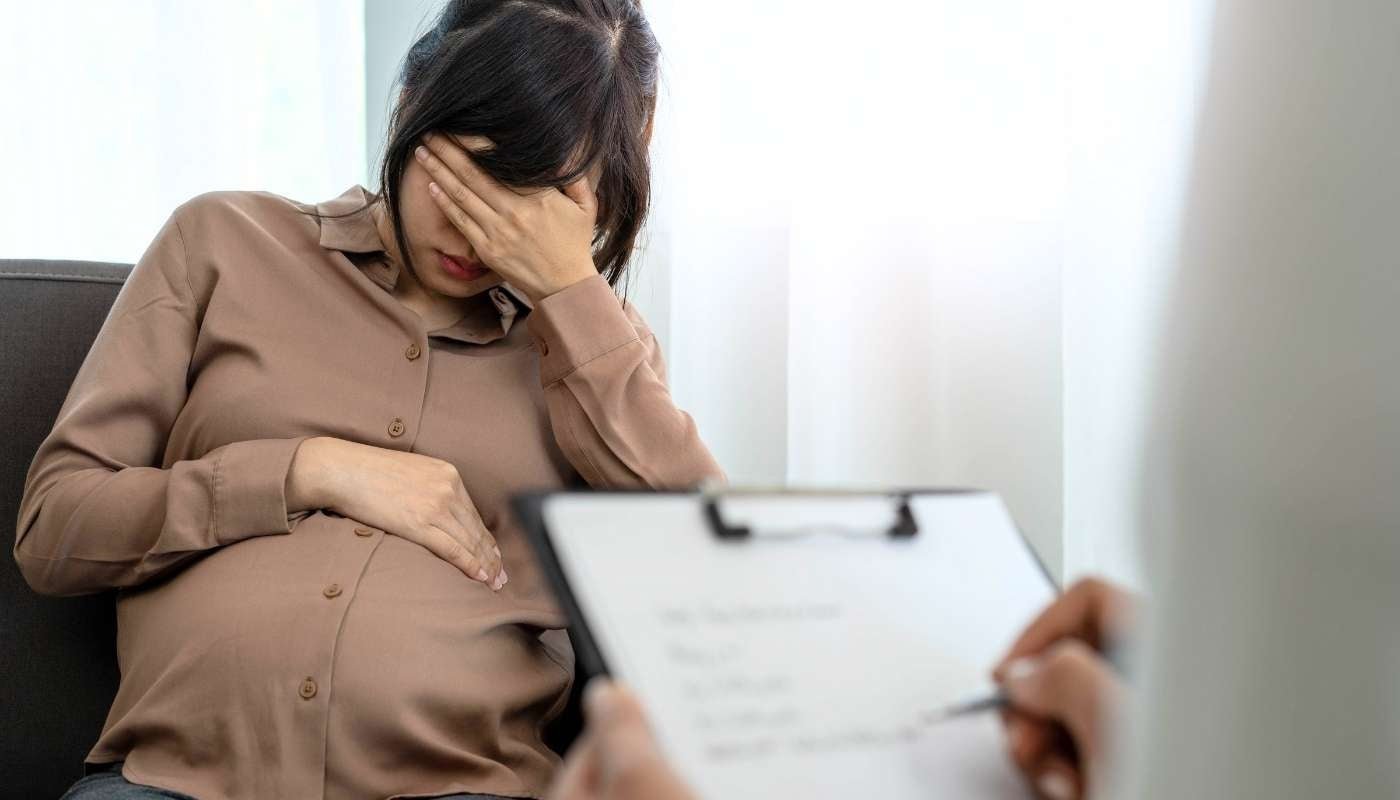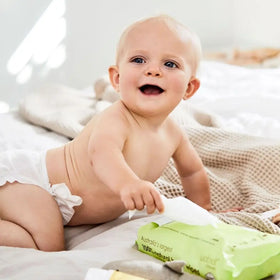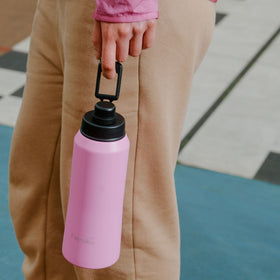
Are You Okay? Talking About Perinatal Depression and Anxiety
Becoming a new parent is an amazing and exciting time. Yet the reality is that it can leave parents to be feeling overwhelmed, scared and anxious. And both new mums and new dads can feel this way. One in five pregnant and new mums, and one in ten dads experience perinatal anxiety or depression. Perinatal is the term used to cover both antenatal and postnatal depression and anxiety. Antenatal is the time during pregnancy, and postnatal (or postpartum) is the first year after baby's birth.

One in ten dads suffer from antenatal or postnatal depression and anxiety Often, however, new mums and dads don't realise what's happening to them. So they struggle on alone instead of seeking help.
“Even though perinatal anxiety and depression is common and affects around 100,000 families across Australia every year, many people still don’t know its signs and symptoms,” says Terri Smith, CEO of PANDA – Perinatal Anxiety & Depression Australia. “They simply don’t recognise that they are experiencing a serious illness that may require treatment.”
“This means more parents are suffering in silence for longer, reducing their enjoyment of what should be a very special time and potentially even putting their lives at risk. This is why it’s critical to educate parents, partners, their loved ones and the wider community to help identify perinatal anxiety and depression and to reduce the stigma and shame often associated with seeking help.”
“At PANDA we know the sooner mums and dads struggling with perinatal anxiety and depression seek help, the sooner they can recover.”
During Perinatal Depression & Anxiety Awareness Week from the 12th to the 18th of November, PANDA is running the 'It Happened to Me' campaign. The campaign will be sharing stories about parents' personal experiences of antenatal and postnatal depression and anxiety. The aim is to encourage people to across Australia to start conversations about the illness.

One in five mums suffer from depression and anxiety during and after pregnancy
Personal experiences with depression and anxiety
There's a history of depression in my family, and of mental health issues in my husband's family. One of my close family members has struggled with depression for many years. And a large part of the struggle is the stigma that surrounds depression. I want to respect this person's privacy, so I'm just going to call them My Loved One. MLO goes silent when the depression kicks in. I can go for weeks without a response to my text messages and phone calls (when we usually speak at least weekly). Over the years I've learned to pick the signs early on, and my whole family increases their encouraging text message and voicemails. We all remind MLO that we're here, that they're loved, and that we'll help with anything we can. One day, I had a conversation with MLO about visiting the doctor to get on to antidepressants. And I was amazed that MLO didn't want to do it - "didn't want to take the drugs". We had a long conversation about how you'd take painkillers if you broke your leg, or would take antibiotics if you had an infection. Depression and anxiety are just as much a health issue as either of those. I know that conversation helped MLO, but we've had to have many, many conversations about depression and how you need to ask for help. Or accept it when it's offered. Recently MLO and partner had their first baby. Once again, all the family were on the lookout for signs of depression in both of them during the pregnancy. And we're still having the 'Are you okay?' conversations post birth. Particularly now that the first flush of excitement with the new baby has worn off. As a family, we've worked hard to remove the stigma of depression and anxiety. We've done our best to normalise mental health issues in the same way as physical health issues.
Where to get help for perinatal depression
I guess what I'm saying is this: You don't have to tough it out on your own. It's more common than you think, and there is help available. Talking about depression and anxiety, whether it's antenatal, postnatal or at any other time, helps normalise an all-too-common illness. You'll be surprised at how often you'll hear, "it happened to me".
There are lots of places that you can go for help. Here are some: PANDA helpline: 1300 726 306, panda.org.au, Beyond Blue: 1300 22 4636, beyondblue.org.au Or see your GP for help.
Images: BigStock










